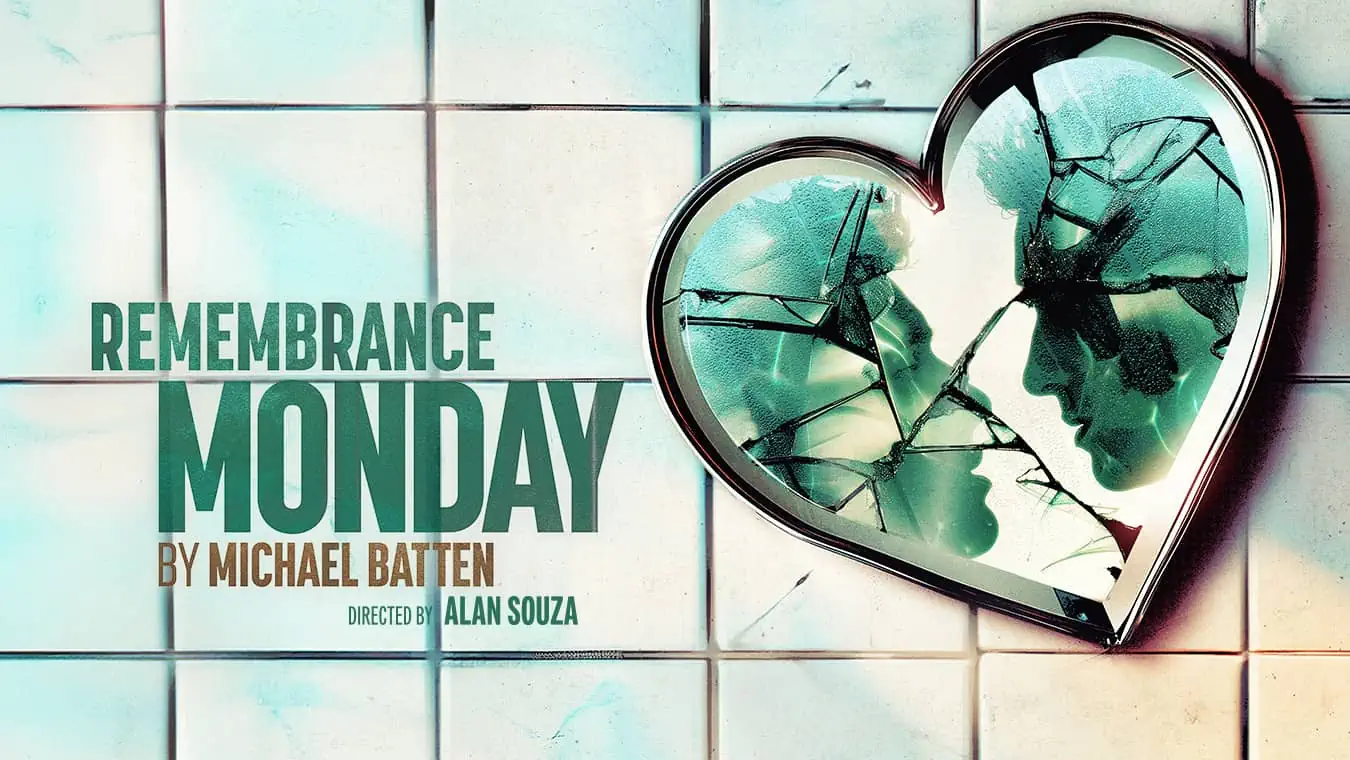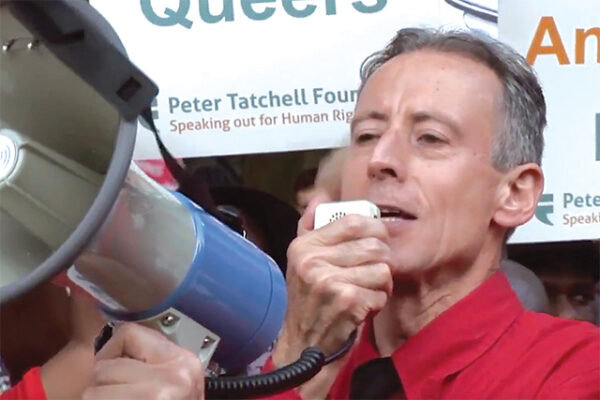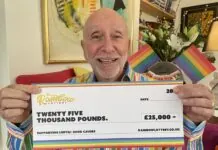Without last year’s critically acclaimed movie ‘Pride’ the story of LGSM would likely have been lost forever in the annals of queer history. Now, after a 30-year hiatus, the group have reformed and will hoist their banners once again as they march through the streets of London. Chris Godfrey talks activism, Pride and LGBT rights with members of LGSM and the mining community they strove to help.
Pride is a very different beast to the one that saw LGSM (Lesbians and Gays Support the Miners) prowl through the streets of London three decades ago. It’s tamer, it’s put on weight and it now comes sporting a Starbucks branded tiara and gloriously blue Barclays sash. It hasn’t lost its roar though, and that it’s now the country’s second biggest street party after Notting Hill Carnival is a testament to how far LGBT rights in the UK have come.
But while Pride and LGBT rights in the UK have transformed beyond recognition, the political landscape bears more than a few similarities to that faced by LGSM and the miners during the mid-eighties. An unexpected conservative majority has promised more cuts to the tune of £12 billion, trade unions face further strangulation, and just last week 250,000 marched against austerity and the damage its doing to the most vulnerable.
The parrallells aren’t lost on Dai Donavan, one of the miners from the community portrayed in the film, who’ll be marching with LGSM and the trade union bloc at the parade.
“Certainly it would be more redolent of 30 years ago when the miners came to what was ostensibly a gay march,” he says. “But I do say to some friends and colleagues, if you think [the last general election] was bad, just think what it was like in March of ‘85, after a year on strike, having made such strong bonds and relationships with groups all over the country.”
Though LGSM has marched in recent Pride festivals their reunion in London stands to be their biggest gathering since the events of the movie. They’d originally been scheduled to lead the entire parade but in a mark of solidarity with the rest of the trade union bloc – itself too big to be pushed up front – they opted to drop back and head up Section C.
Though there’s just 20 members of LGSM left at the parade more than 200 will march under their banner, as they’re joined by family, friends, the Tredegar Town Brass Band and South Wales Gay Men’s Chorus. Such a display of solidarity and support is a tribute to the strength of the bonds made between two distinctly different groups.
“We were desperate for the assistance of workers up and down the country,” says Donavan. “We were fortunate that there were like-minded people in LGSM; that instead of criticising the mining communities for their blasé attitude to the attacks that lesbians and gay men had been experiencing up and down the country, they offered their hand of friendship.”
Sian James, also part of the mining community, readily accepted the group’s support when it came, despite concerns from others in her town. Since marching with LGSM at Pride in the eighties, she’s continued her LGBT advocacy over the years, both as an activist and a Member of Parliament (culminating in her recent chairing of Swansea Mardis Gras). When she marches at Pride in London, she’ll do so with three generations of family by her side.
“What was really interesting over the years was to see the atmosphere in a certain way change,” says James. “In the early days you might just see gay people who are brave enough to be out…and over the years what we saw was people were bringing family, friends, neighbours. It became a much more wider event in the community and that’s been great.”
Since the miner’s strike, James became actively engaged in various women’s rights campaigns and was eventually elected to Parliament in 2005, becoming the Swansea East’s first female representative and one of only eight women MPs from Wales. It’s a highly successful career, one that’s benefitted greatly from her experiences with LGSM.
“It’s very interesting that from our miner support group, which was such a catalyst in my life, two of our members became members of parliament: our Francis and myself,” says James. “I do think that that’s where we learnt to have the confidence in things. We got the confidence in Wales. And a big catalyst for us was LGSM.
“It gave us so many opportunities as activists and a lot of those skills we learnt from the gay men and the gay women that we met. We actually learnt that there was an art to positive, passive resistance. We would never have learnt if we hadn’t met up with these groups.”

“We have a very famous banner in our community…and it says ‘the price of freedom is eternal vigilance’,” says James. “It means you can never take your foot off the pedal. Whatever happens to have freedoms you have to look after them, you have to protect them. The battle is never won; the fight is never over. There will always be some unfairness that will draw your attention back.”
It’s a sentiment that rings true with the remaining members of LGSM. With the movie enjoying international acclaim they’ve now reunited, reforming the group to pick up from where they left off. As well as raising money for The Mark Ashton Red Ribbon Fund (set up after Ashton died of HIV, aged 26) the newly reformed LGSM are also fundraising for the widows of Turkish miners that died during in the 2014 Soma disaster, which killed 311 people.
“The movie has brought us all back together again,” says Mike Jackson, who co-founded LGSM with Ashton and operated as the group’s secretary. “Some of us have remained friends, I probably had about half a dozen I’d kept in regular contact with over the years. The movie’s had such an impact on us that we’ve reformed and are seeing a lot more of each other. It’s great, we’ve got our legacy at last.”
Though there was a period when Jackson stopped attending Pride, he started going again six years ago. The event’s current format is a stark contrast to what he was used to as one of the early activists that fought for LGBT visibility and equal rights at a time of institutionalised homophobia.
“I’ve seen the huge transformation from a small and highly politicised organisation – it’s still always had its fun elements in, drag queens and so on – but now it’s a much more commercial affair,” says Jackson. “I came out in 1973, so my first pride march was in 1974. It was a tiny march and a lot more political. There was a lot more the LGBT community had to fight for back then.”
Back then even paying for visibility was a struggle. In the late seventies Jackson tried to place an advert for the North Staffordshire Gay Switchboard in one of the local papers, but out of homophobia the editors refused to run it (a decision which caused Jackson and the Switchboard’s organisers to occupy the paper’s offices).
Today though, the world’s biggest corporations are scrambling over themselves to be affiliated with the most high profile Pride marches, stamping their logo on anything that so much as glitters, rolling out rainbow editions of everything from burgers to trainers. Even with this heavy commercialisation, Jackson still sees the value in Pride parades.
“I think even more so,” he says, when pressed about the political relevance of the parade. “One of the nice things that Pride [in London] has done is have all the flags on the march and that’s a reflection that this is a global movement. There are 73 countries where it’s illegal, 10 where it’s a capital offence. So I think we have a particular duty here to reach out to the rest of the world and offer support and practical help.

The film may be LGSM’s legacy but it’s the group’s resolve that has had the more significant impact, one that still resonates strongly with Donavon.
“At a time when that great union, the national union of miners, was flickering and in danger of being extinguished, there was another flame being ignited in the hearts and minds of lesbians and gay people across the UK,” he says. “You do not know where that flame will be picked up and carried forward. I just feel that’s a justification for someone like me, doing the work we do.”
Whether they’re continuing their work with the unions, speaking about the importance of vigilance at public events or supporting widows of deceased miners in Turkey, the passion to help the vulnerable still burns strongly within the LGSM community. At a time when Pride is locked in arguments over UKIPers and ubiquitous advertising, LGSM serves as a reminder of what is really important, of why these marches are still of huge significance.
They may no longer be leading the parade, but they symbolise everything Pride is about.












